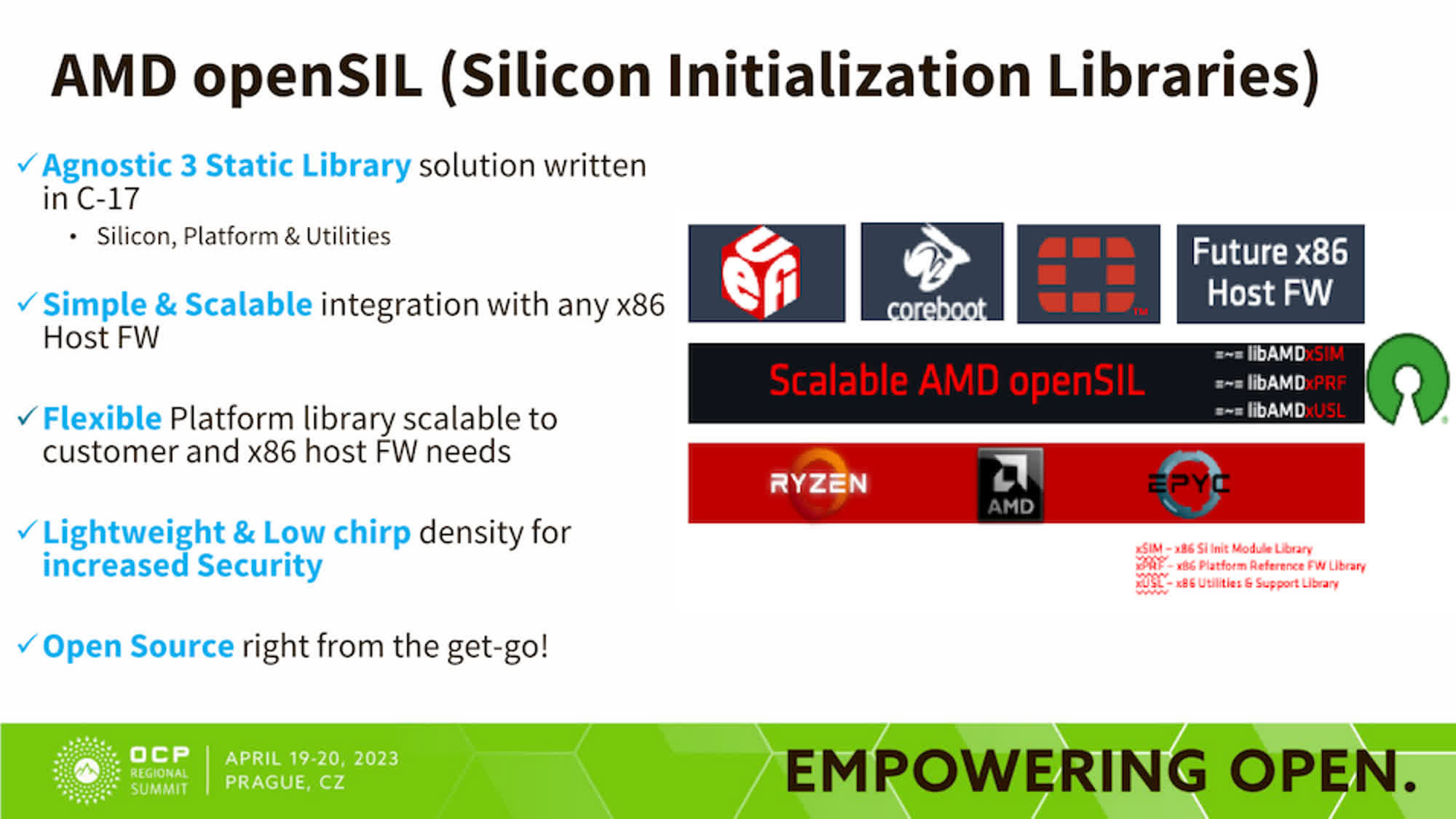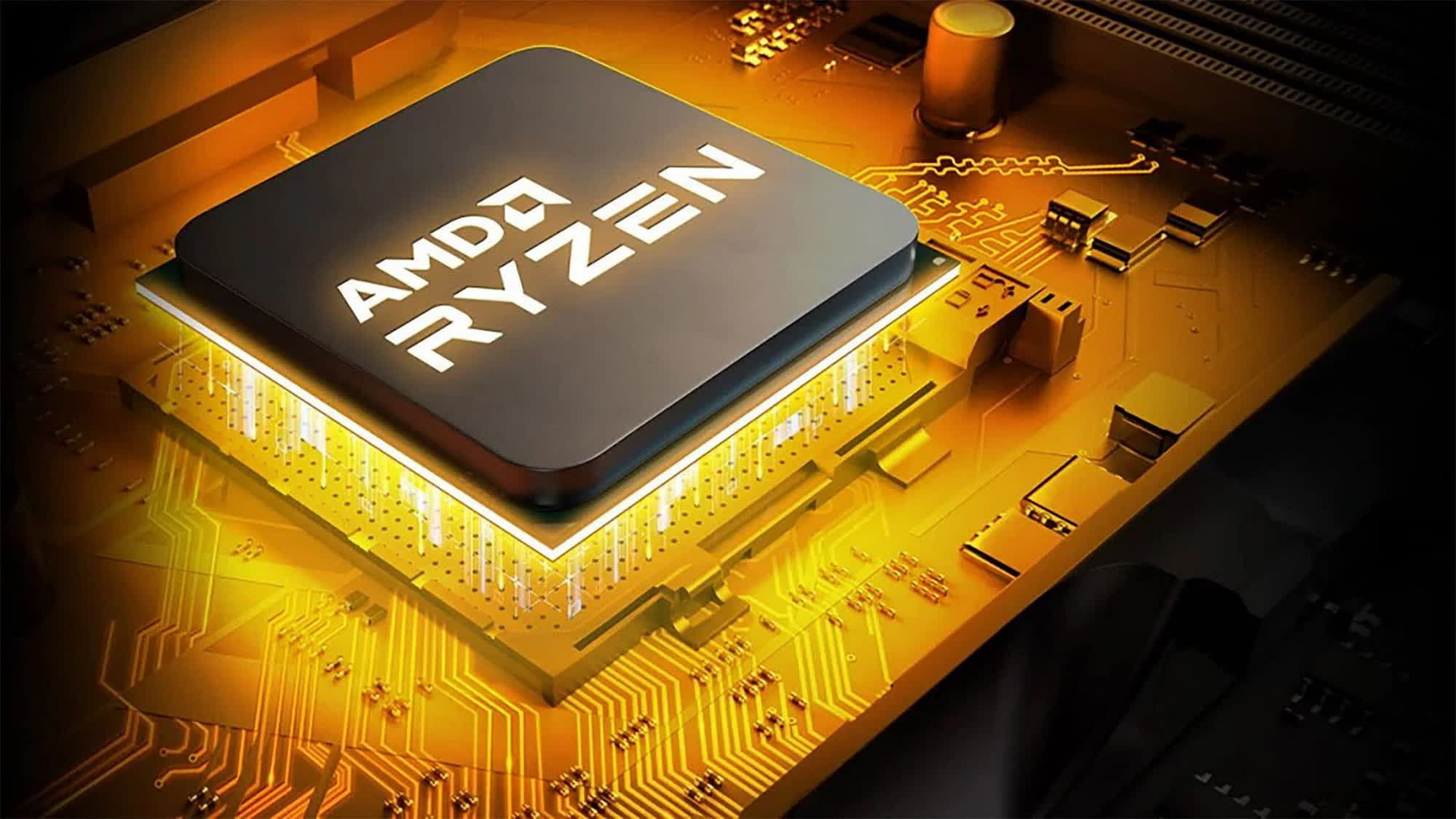In context: One of the most important roles of modern PC firmware, or even of the now-defunct BIOS system, is initializing core hardware components before switching to the operating system's bootstrap procedure. AGESA, AMD's own initialization library, will soon be replaced with a hopefully better alternative.
AGESA, or AMD Generic Encapsulated Software Architecture, has been performing platform initialization procedures on AMD UEFI-based motherboards since the first generation of Zen CPUs. AGESA "wakes up" the CPU cores, chipset, memory and other hardware subsystems, and is an essential part of the UEFI firmware installed on AMD-compatible motherboards.
As highlighted in a recent presentation by AMD Fellow and Chief Firmware Architect Raj Kapoor, however, AGESA has its own issues when it comes to interoperability, close integration with the aforementioned UEFI firmware, and of course security.
AMD is now facing a challenge trying to address evolving market requirements and opportunities, as the company essentially needs a new initialization library that is better than AGESA on all fronts. The new library should provide an "extensible architecture," a "simple & secure" approach to hardware initialization, "agnostic & scalable" tech capable of running on any x86 host firmware solution, and finally it should be open source from the get go.

The alternative to AGESA is named openSIL, where SIL stands for Silicon Initialization Libraries. OpenSIL is written in C-17, can be integrated with any x86 host firmware available on the market (UEFI, coreboot, and others), and is "lightweight" so it provides a lower density for security issues compared to the AGESA+UEFI combo. AMD has been working on it since 2022, and it's been designed to be open source from the start while (U)EFI and AGESA were not.
Right now, AMD is still presenting openSIL as a proof-of-concept initialization library which is compatible with 4th Gen EPYC CPUs. The Santa Clara chipmaker plans to end the evaluation phase in 2026, when openSIL will be implemented in production on AMD's UEFI host firmware.
AMD said openSIL is still a work-in-progress solution, but it's getting closer to feature parity with AGESA. The new library could eventually become part of AMD UEFI firmware for Zen, EPYC, Ryzen and all the other (x86) computing platforms sold by the company.
